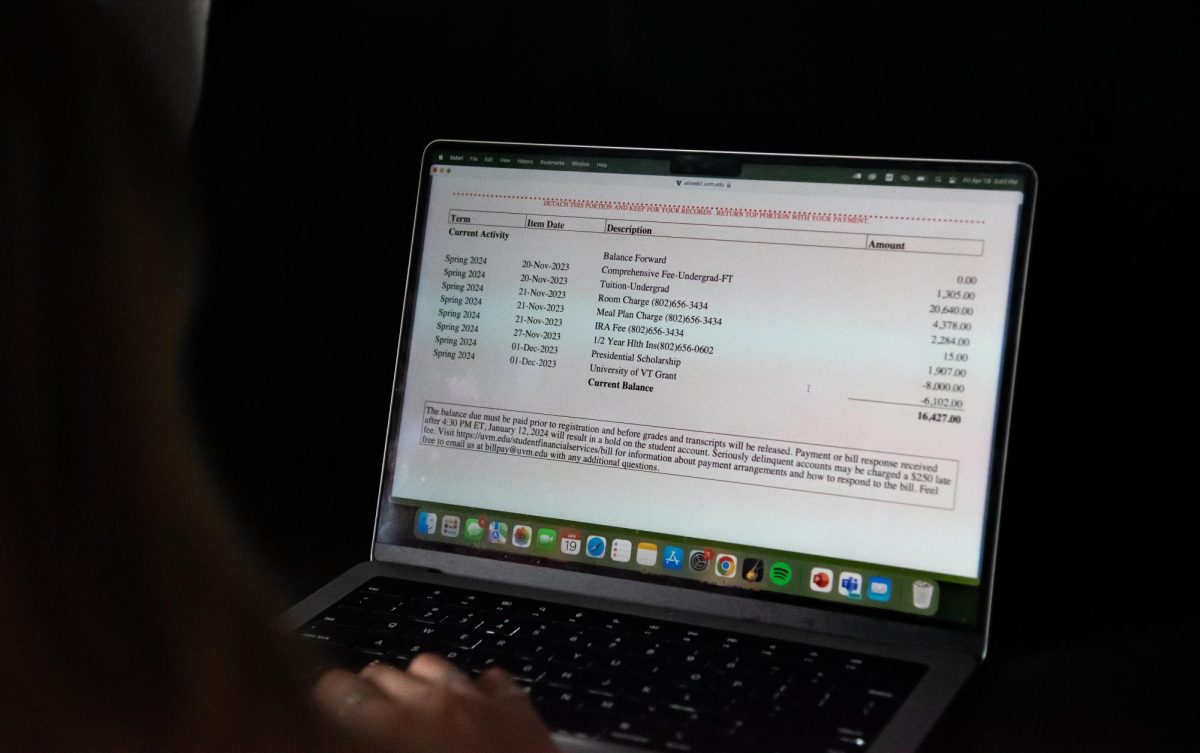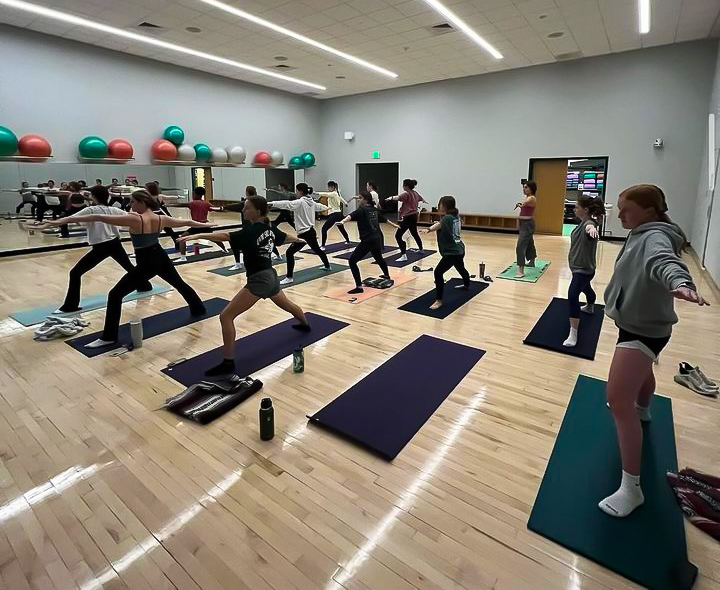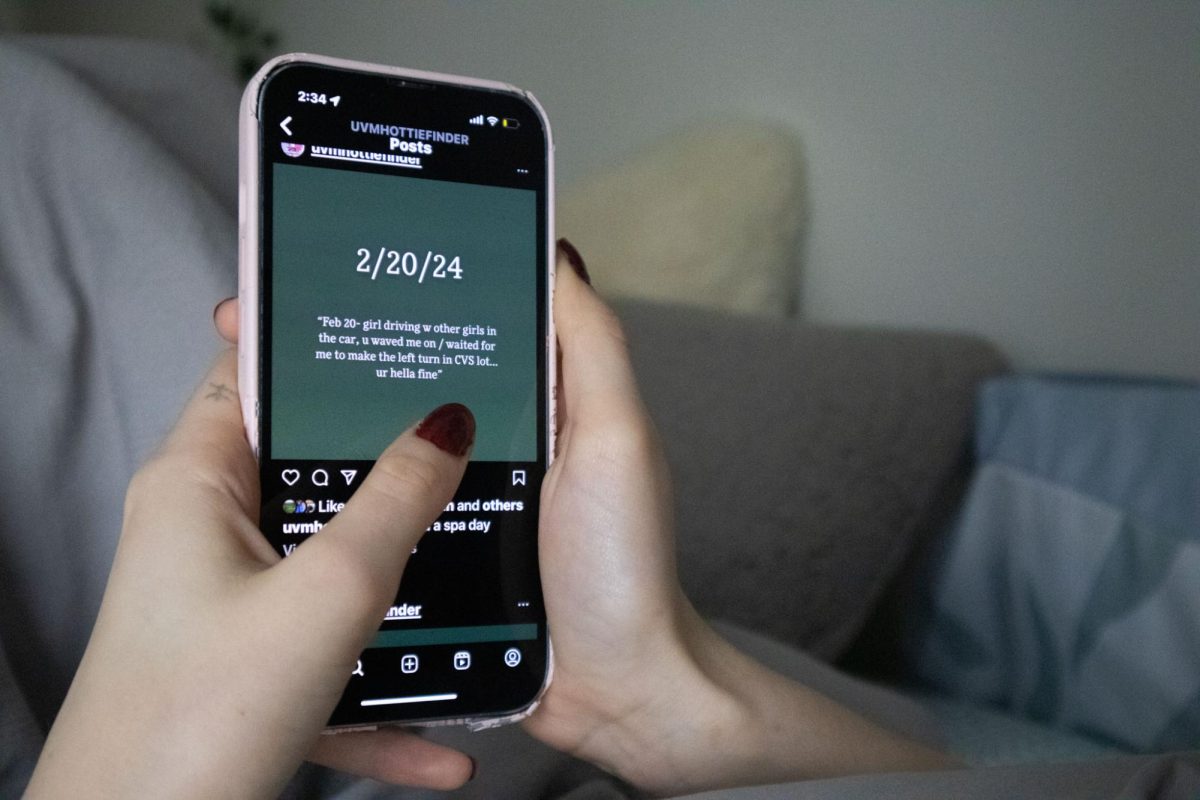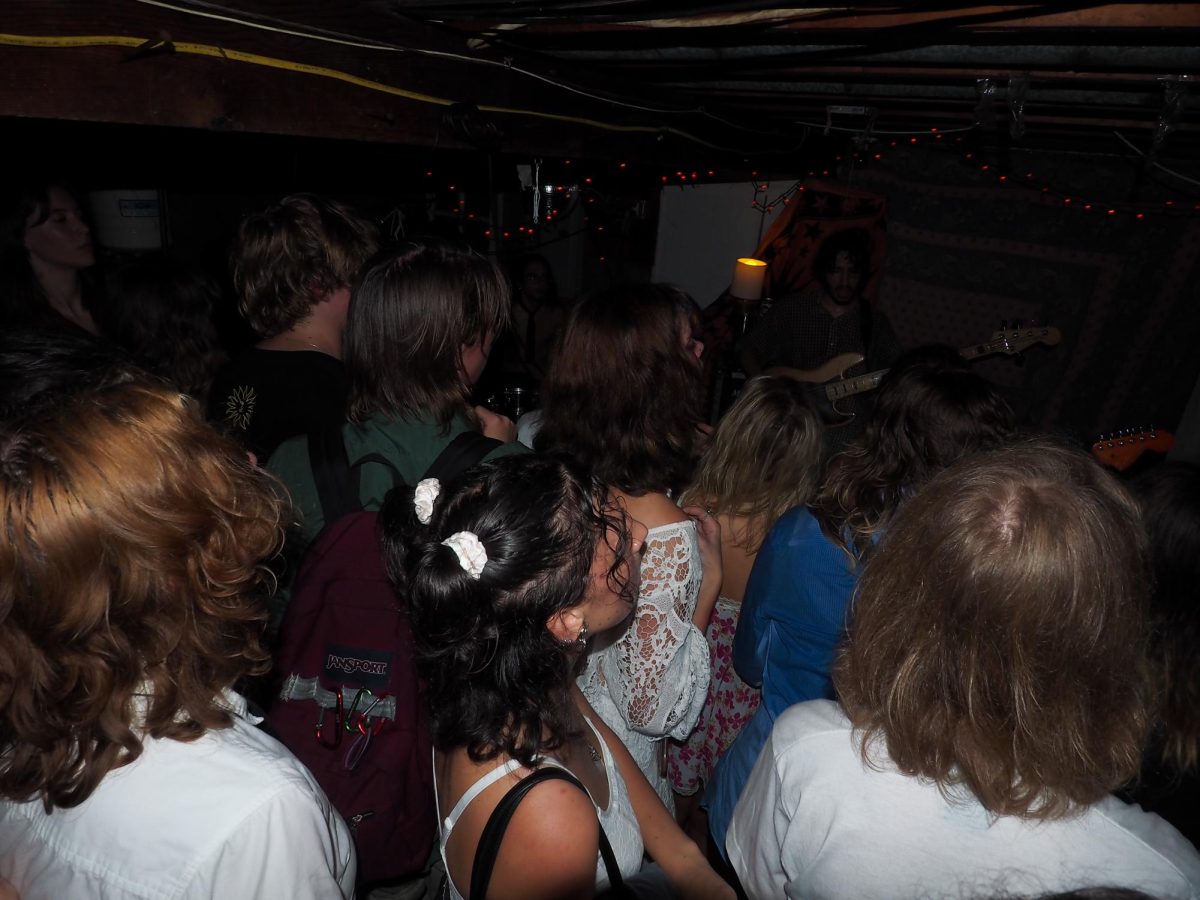A history of piracyOne day in April 1999, UVM received a copyright violation fax from the Recording Industry Association of America (RIAA), the first of its kind at UVM, in response to a students sharing music online.More than 10 years later, piracy has become a solid fixture in Internet culture. Peer-to-peer (p2p) file-sharing clients like Frostwire and Limewire offer hundreds of thousands of free songs, movies and television shows that can be downloaded in mere minutes on high-speed broadband connections. According to students and UVM staff, the practice is widespread on campus.Dean Williams, director of ETS Client Services, and member of UVM Information Technology (IT) department for 32 years, recalls when Napster, the first mainstream p2p network, hit UVM.Williams said that, in the fall of 1999, the use of Napster completely saturated UVM’s Internet bandwidth. “We were all shocked when Napster appeared one fall, and mainly because it just killed our connections to the Internet. All of a sudden people were saying ‘I can’t get to any sites on campus.'”UVM rapidly increased its bandwidth and no longer has concerns about running above capacity. However, Williams said that p2p media sharing traffic is still some of the highest use of the bandwidth.In the hours between 1 a.m. and 4 a.m., Williams said that the the outgoing traffic exceeds the incoming traffic.”If you look at graphs of traffic coming into the University and traffic leaving the University from the residence halls, traffic leaving the University is much greater than what’s coming in, and it’s not because people are uploading a lot of pictures to Flickr and Facebook,” Williams said. While free music is a dream come true for some, many students quickly realize that like the majority of campuses in the United States, UVM has policies against file sharing. “I know that one of my friends … they shut off her wireless because her roommate was doing it, it wasn’t even her. But if they take away your Internet, you can’t do it anymore,” sophomore Zandile Gamache said.”It hasn’t really scared me away, I feel like the people that I know that got caught, got caught downloading a lot of music,” Gamacha said.Junior Nick Downey says that after he got a notice from UVM for file sharing, he stopped file sharing on the network.”I just started going to my friends off campus to download all my music, that’s what it eventually came to,” he said.Downey’s story is common. The majority of notified students stop file sharing on the campus network before any serious sanctions get placed on them.”I don’t think it’s an issue that people are necessarily going out of their way to defy UVM policy, I don’t get that at all,” client services staff member Carol Caldwell-Edmonds said.”A lot of the students I see here personally are first-year students — they’re new; somebody else said, ‘hey did you know you can do this?’ and everybody finds out together when just one of them gets the take-down notice that no, you can’t do that, at least not on UVM’s network,” Caldwell-Edmonds said.UVM’s responseMore than 10 years after that first fax, UVM is still receiving copyright notices, now over a variety of types of media that previous connection speeds could not handle. The University still responds with a variety of legal and disciplinary procedures, most of which are on display on the University’s website.While individual opinions vary, this is not simply a moral decree from the upper echelons of the IT department. UVM is, in many ways, caught in the middle of a long and complicated legal battle.The Higher Education Opportunity Act (HEOA) is a large part of why UVM is compelled to do what it does.While the Act increases federal money given to universities, funds scholarships and gives low-interest loans to students, its recent 2008 revision states specific requirements with regard to file sharing. Universities now have to follow a host of guidelines and statutes regarding copyright policy by the July 2010 deadline in order to retain the HEOA support.”Doing nothing is not an option, you clearly have to document what it is you’ve done and you clearly have to have certain kinds of things in place,” UVM Chief Information Officer David Todd said. “It takes time and it takes money, you have to invest the staff time and you really don’t have a choice.”Included in the mandate is a stipulation that colleges and universities have written plans to effectively combat piracy. These combative measures include the use of one or more technology-based deterrents, education of the campus, disciplinary procedures, and an internal review of the effectiveness of the deterrents.The cost of these measures, among others, has certainly raised concerns among those in higher education. In a 2008 study carried out by The Campus Computing Project, many campuses were found to be spending vast amounts of money in order to comply.According to the study’s survey results, public universities were found on average to be spending about $22,500 on software to curb p2p file-sharing, $65,000 on special hardware costs for p2p, and $83,000 in other direct costs.Of the options, one method of curbing downloading that UVM has looked into is bandwidth shaping — a process of limiting p2p access while prioritizing other internet uses such as web browsing and e-mail.According to the minutes of the February UVM Board of Trustees audit committee, bandwidth shaping would have cost the University $150,000 a year had it been incorporated into UVM policy.Aside from the cost of technological deterrents, a substantial number of work hours are put into responding to the complaints.”A person’s salary and time is dedicated to just following up the copyright infringements, that didn’t used to be the case.” Caldwell-Edmonds said.The sending of notices that to students upon receiving an e-mail from big studios and record companies is not unusual. However, part of what the HEOA mandates is that colleges across the states put student penalties and sanctions into their codes of student conduct.If students don’t respond to the initial e-mail from the UVM IT department, the student’s Internet is temporarily disabled and the student’s case is the responsibility of UVM’s Center for Student Ethics and Standards. Meetings, sanctions and disciplinary hearings can then follow.Troy Headrick, assistant director of the Center for Student Ethics and Standards, gets letters from the IT department about students that have had their network temporarily suspended for file sharing.”All of a sudden we’ve got like two or three days to turn those over for these students who for homework or whatever need access to the internet,” Headrick said. “So we try to within a day or two get them in here, and it becomes a five to 10 minute meeting.” He estimated that it takes a substantial amount of time when spread among all the UVM personnel involved. “By the time all is said and done per case, it’s probably about an hour, and that includes the meeting time and all the correspondences that happen before and after the events,” he said.The value of stolen musicWhile UVM suggests alternatives to piracy, students don’t necessarily see the other options replacing p2p sharing.Sophomore Jeffrey Eng said that while he uses Pandora and other streaming sites, he also participates in file sharing.”I use Pandora, but if I want to put it on my iPod or something, I would download it,” Eng said.Professor Thomas Streeter, who focuses on media, technology, law and culture, believes that behaviors can change over time, both in users of technology and in the companies that own the music.”Apple’s iTunes store was a major compromise between users and the industry, a compromise which has further developed over the years,” Streeter said. “Now you can buy unprotected iTunes music files for a dollar or so; in 1995, the music industry thought that such a practice would be the end of the world, but now they accept it.””Lots of different models are being explored, so it’s still all up in the air,” Streeter said.Until a new method of music listening that appeases everyone emerges, Caldwell-Edmunds isn’t convinced that the current model is working.”I’m not saying the DMCA is not enforceable at UVM, I’m saying that in the bigger picture, I question how enforceable something like that can be in the long term,” Caldwell-Edmonds said. “Why not just get on another network. Rent a room off campus, get a Comcast account.””There has to be some kind of intelligent conversation, and we’re not there yet,” she said.












